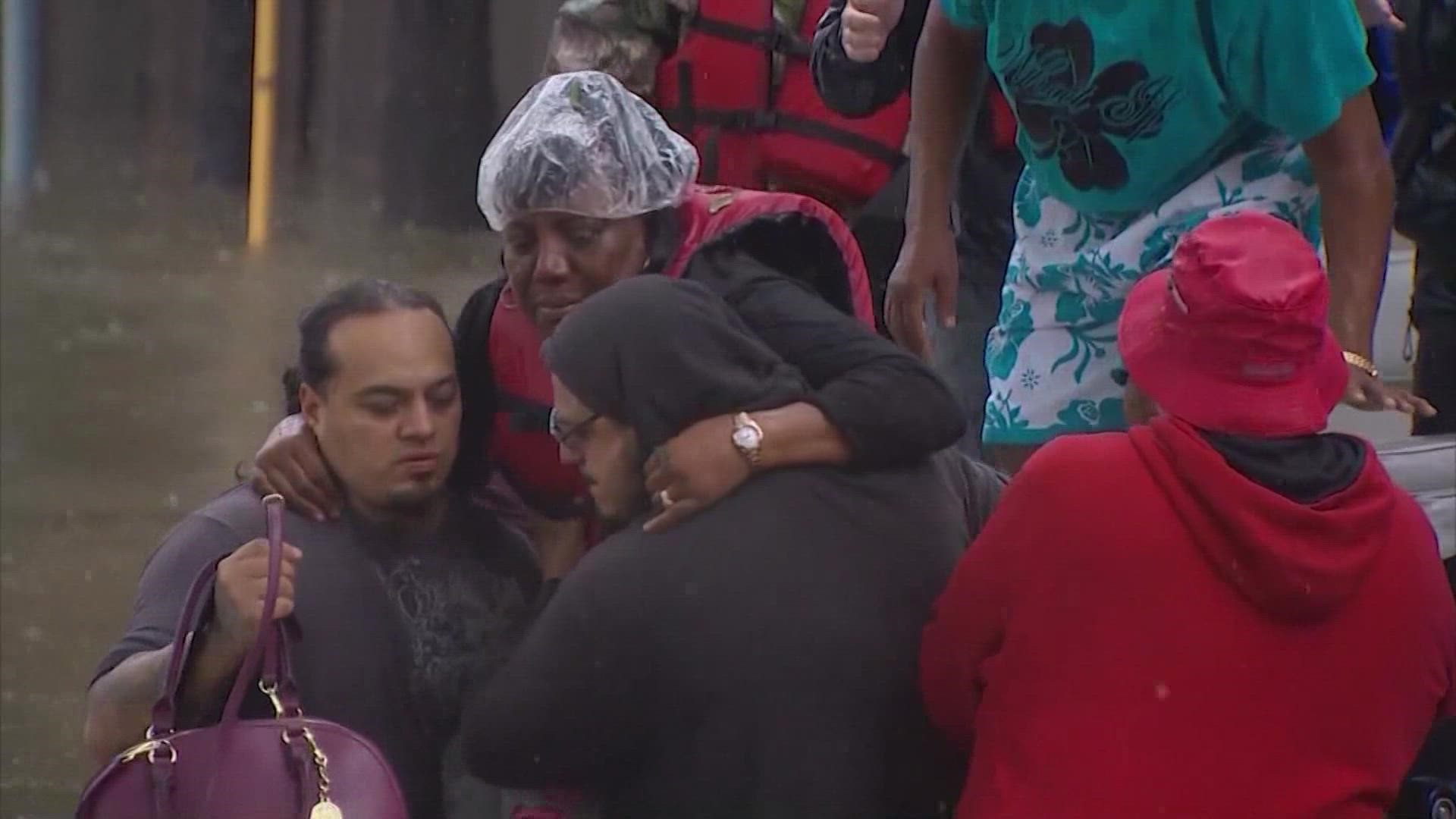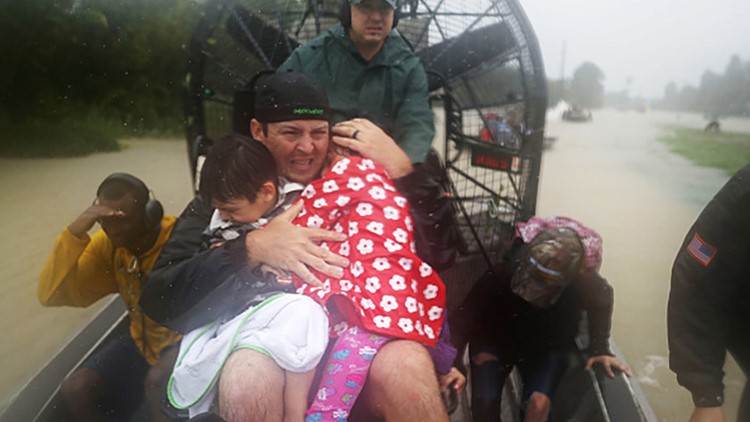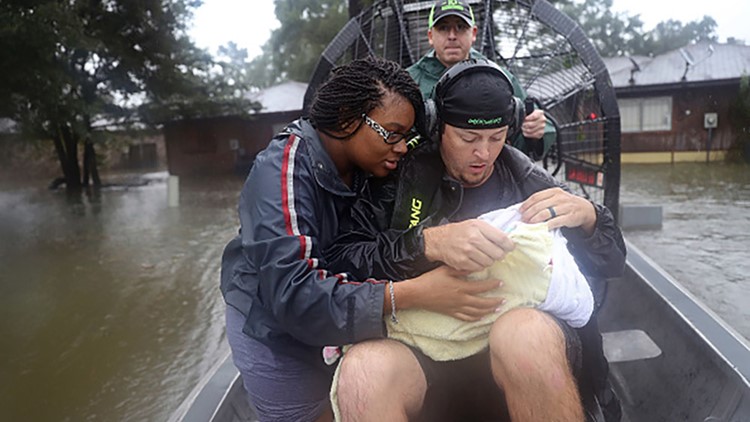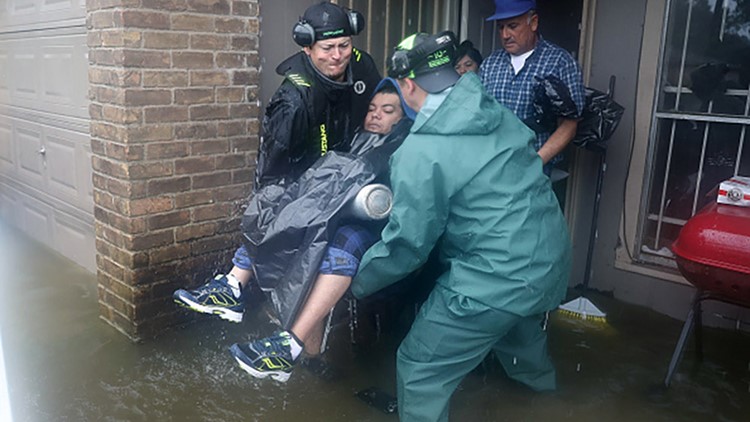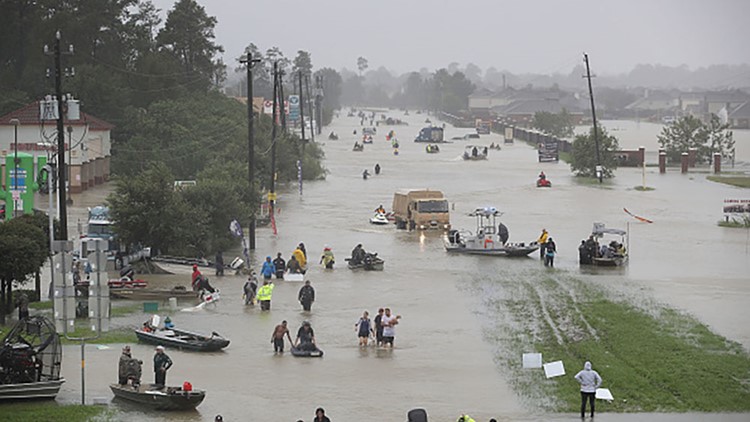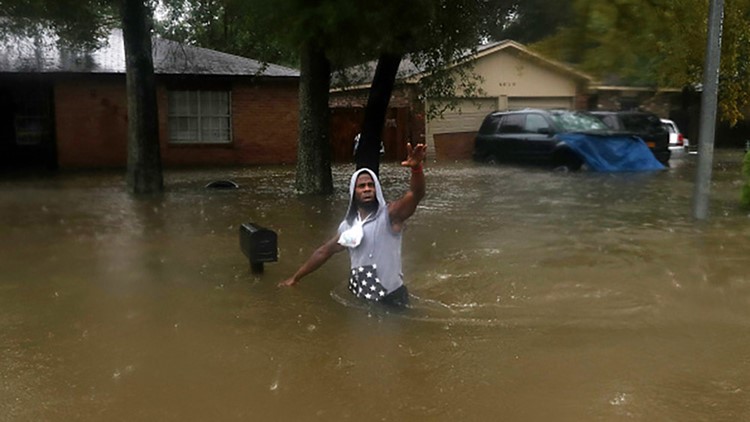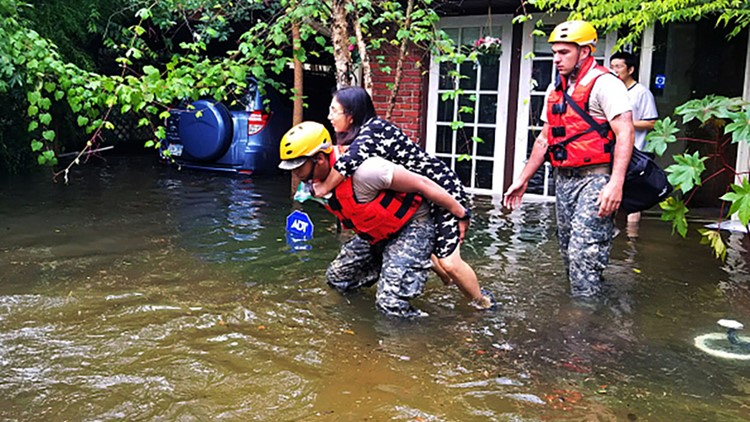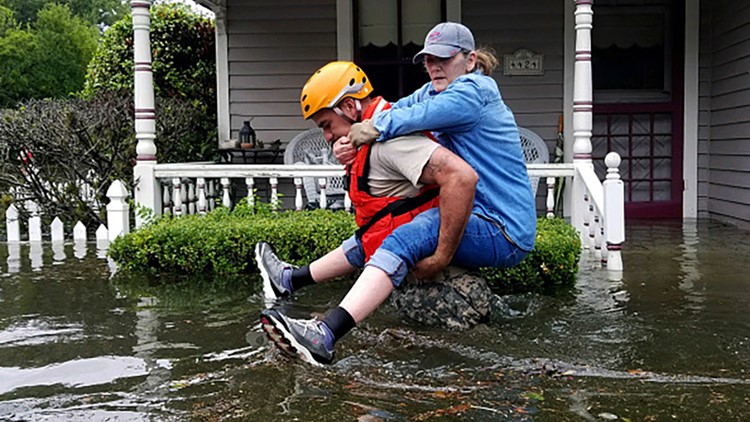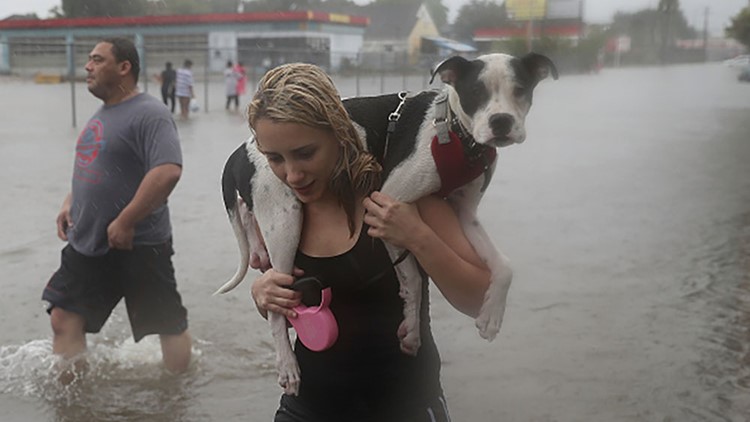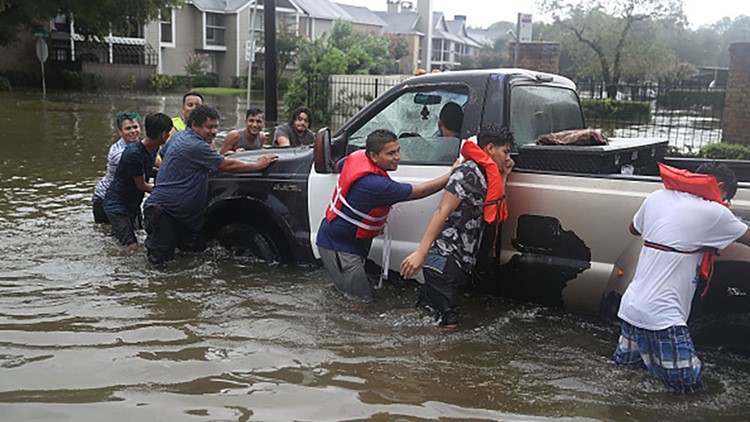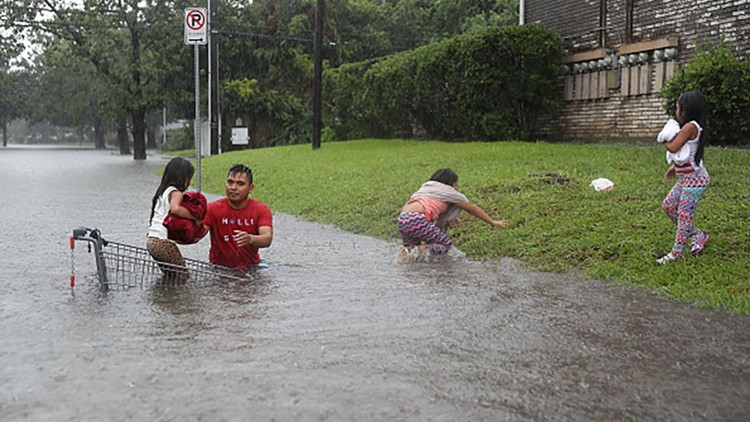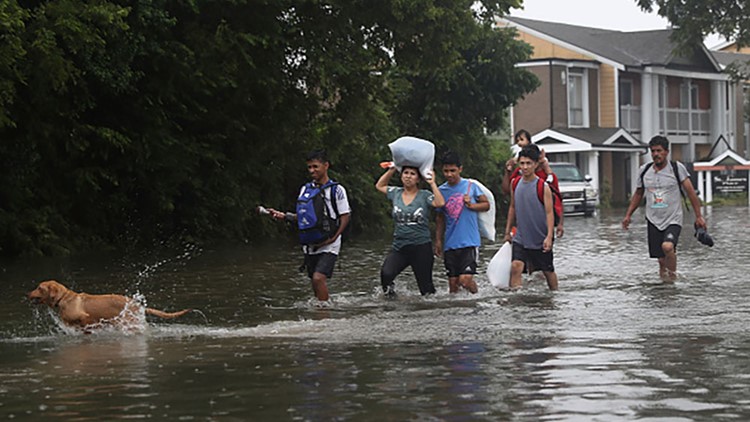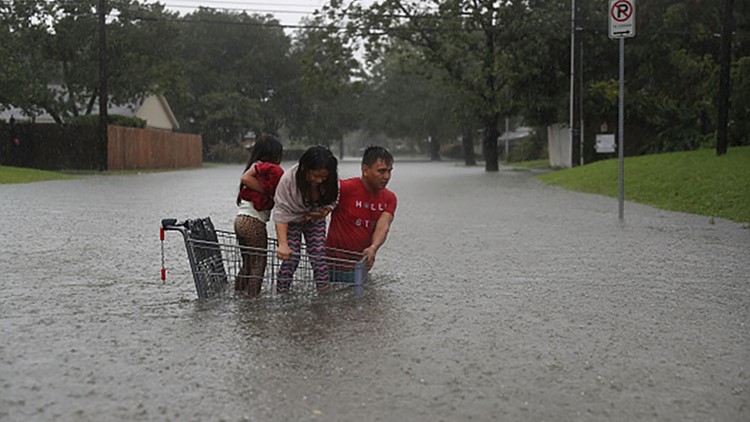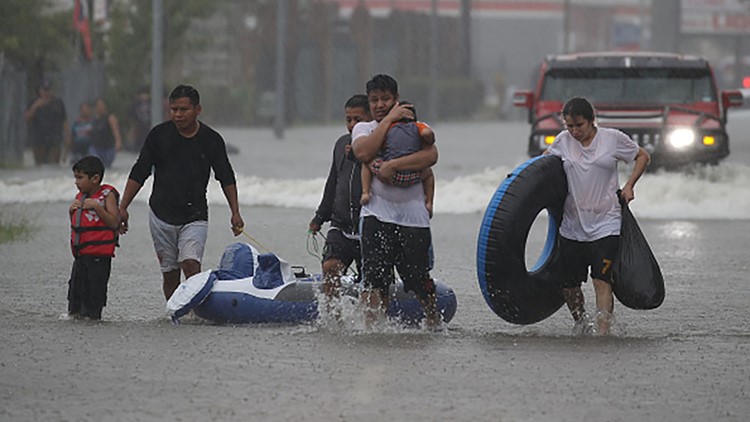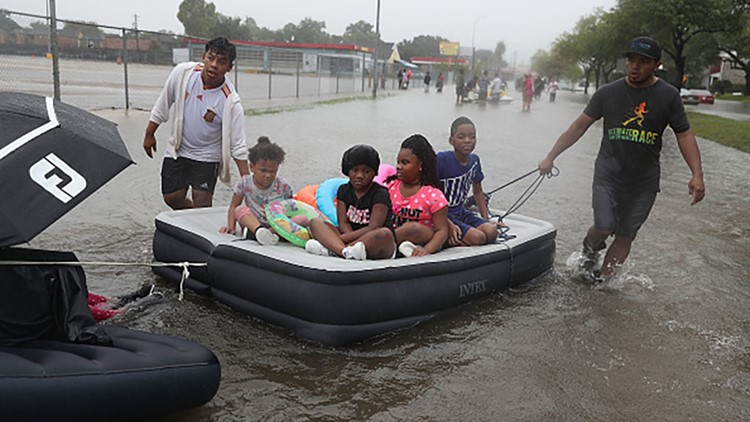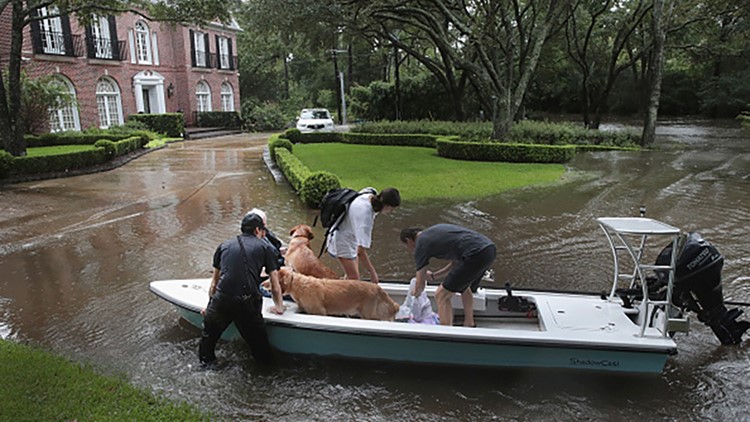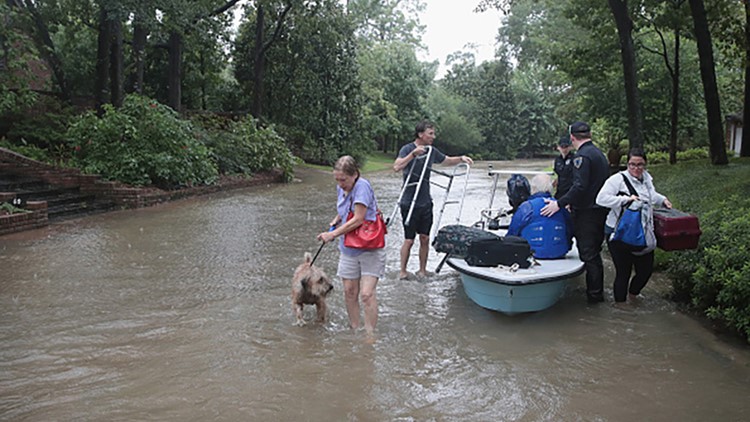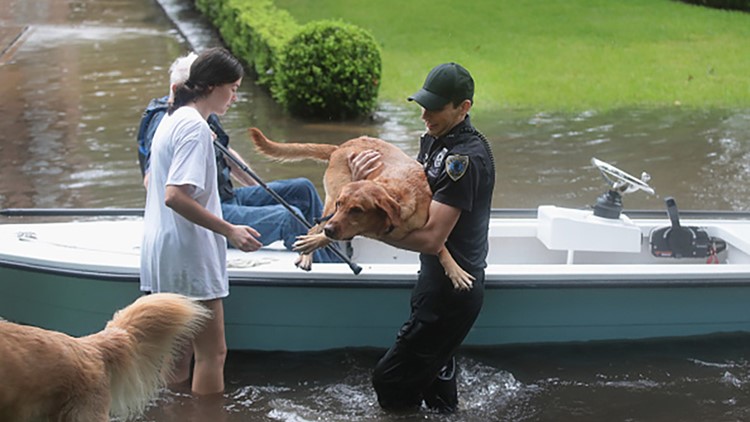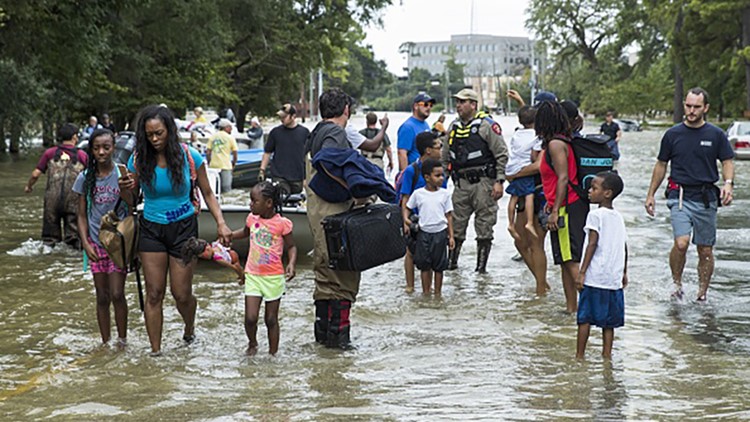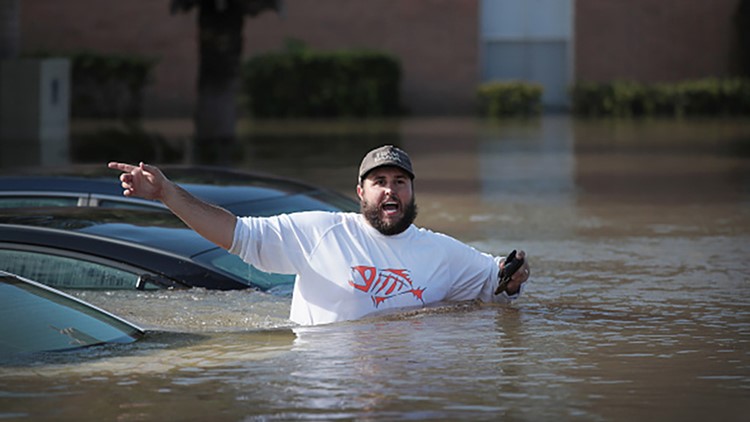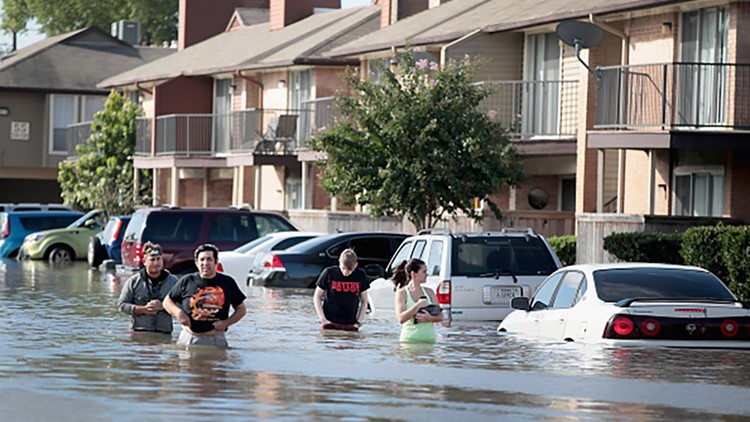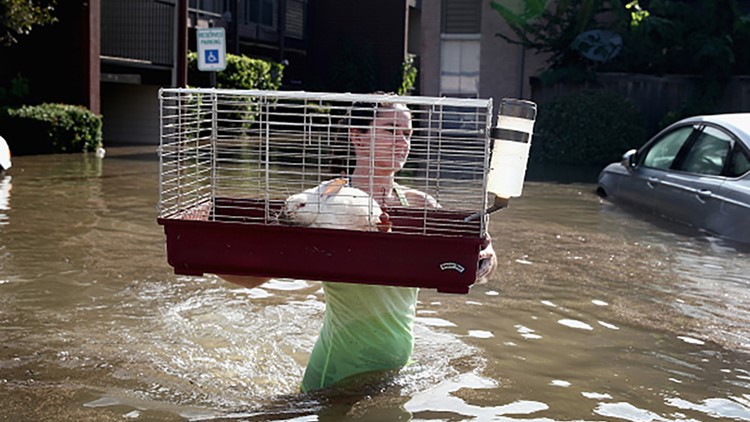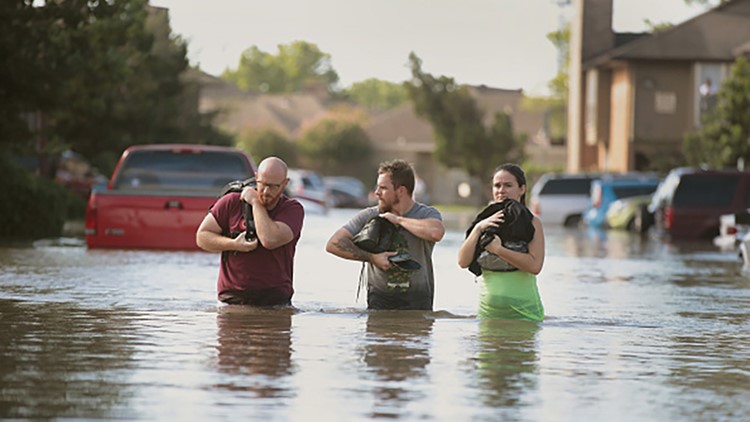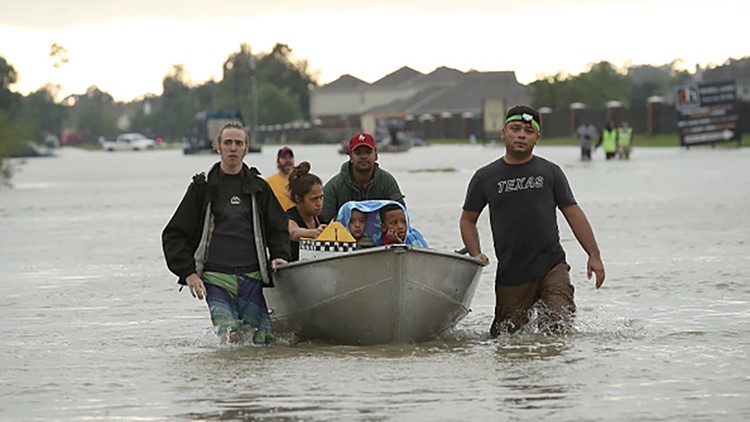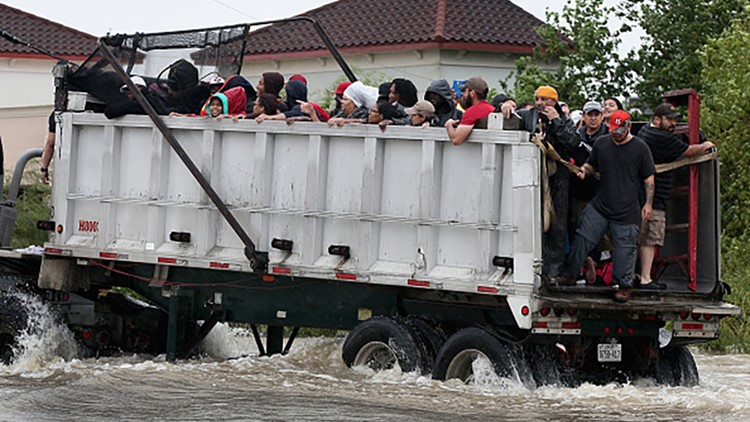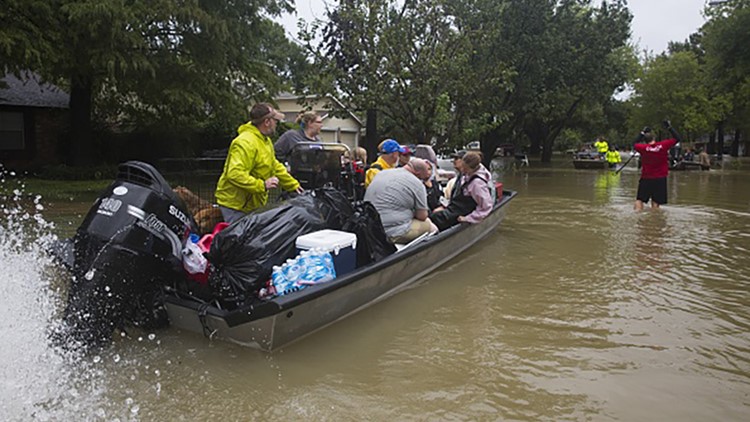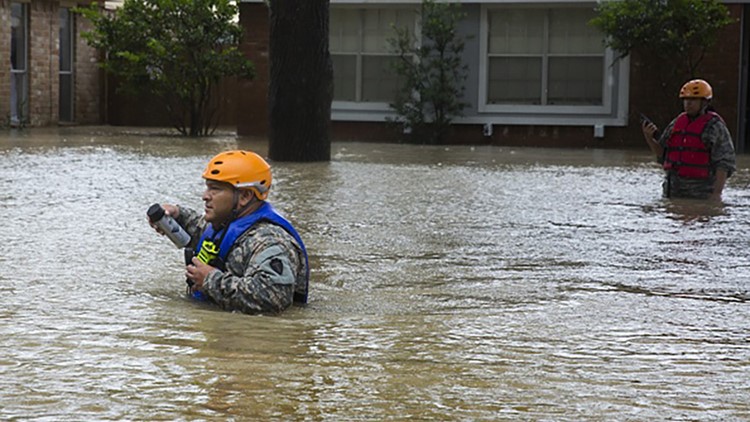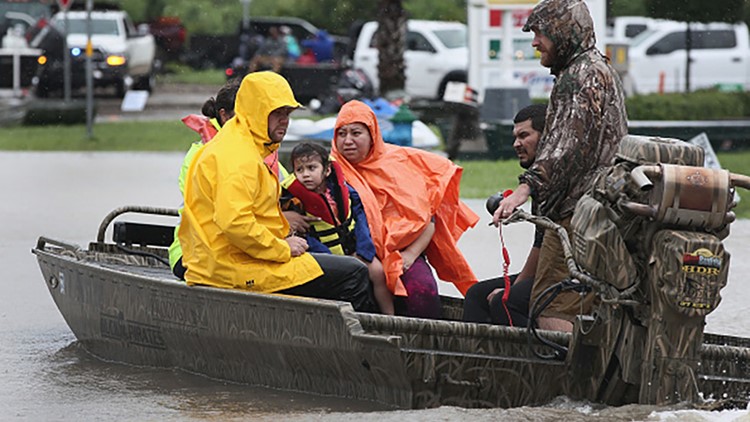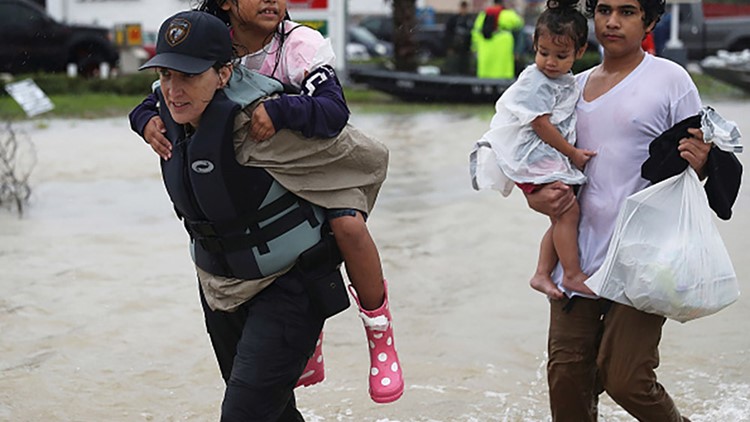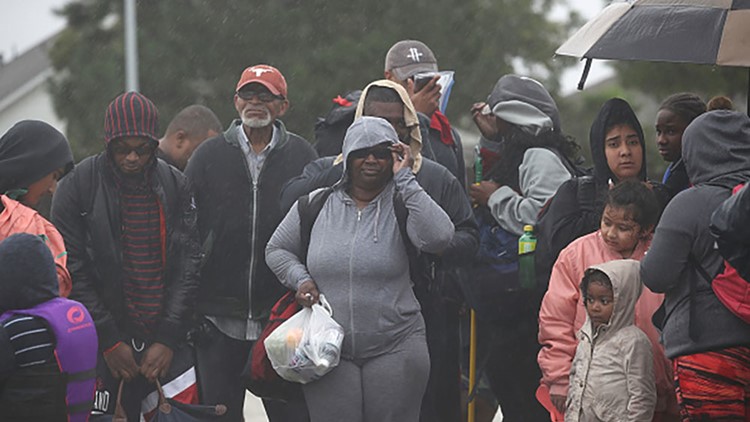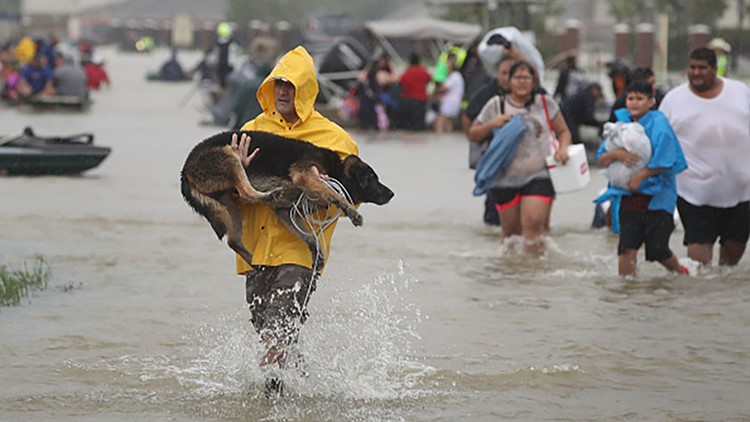HOUSTON — The Texas General Land Office -- or GLO -- discriminated against communities of color when it doled out federal relief funds after Hurricane Harvey, the U.S. Department of Housing and Urban Development found.
The City of Houston didn't get a dime of the money even though it was one of the hardest-hit areas with catastrophic destruction caused by Harvey's floodwaters.
"The matrix that the state set up was inherently discriminatory in nature," Mayor Sylvester Turner said Tuesday.
He said the money went to communities less likely to flood at the expense of Houston residents in flood-prone neighborhoods.
Editor's note: The video above originally aired on May 21, 2021.
Harris County didn't get anything either, initially, but the GLO changed its tune under pressure from Congress and local leaders. It awarded the county $1.25 billion for flood mitigation and infrastructure improvements.
Houston left out in the cold
At the time, Houston Mayor Sylvester Turner demanded Houston also get $1 billion for mitigation projects. He accused the GLO, led by Land Commissioner George P. Bush, of discriminating against minority communities by denying the city funding.
"Communities feeling ignored they weren't thought of with this process, feel disgusted that they weren't thought of enough to get these mitigations funds too," said David Wheaton, advocacy director for Texas Housers.
U.S. Rep. Al Green accused Bush of playing politics with people's lives.
“Whether with intent or by accident, Commissioner Bush is politicizing the needs of our constituents,” Green said in May. “Harvey was not a Democratic disaster. It was not a Republican flood. Blaming the Biden administration is not a good strategy."
Bush blamed it on federal red tape saying neither Houston nor Harris County scored high enough on their applications to get a share of the federal funds.
HUD alleges discrimination against low-income minorities
In June, two advocacy groups -- Texas Housers and Northeast Action Collective -- submitted a civil rights complaint to HUD alleging that the funding was distributed to white neighborhoods at the expense of Black and Hispanic neighborhoods that also needed it.
“Tragically yet predictably, the GLO’s decision that violated civil rights laws delayed the award of badly needed funds to areas of our state at risk of future disaster,” David Wheaton, advocacy director for Texas Housers, said in a video statement published Tuesday. “This delay is the sole fault of the GLO.”
After launching an investigation, HUD officials agreed and said the GLO's method of doling out the funds “discriminated on the basis of race and national origin" and “substantially and predictably disadvantaged minority residents, with particularly disparate outcomes for Black residents,” according to a Friday letter detailing the result of a HUD probe. The land office is in violation of the Civil Rights Act as well as federal housing law, federal housing officials said.
Full HUD report
General Land Office responds
Brittany Eck, a spokesperson for the land office, said in a statement that HUD was politicizing the mitigation plan and the land office administered its program in accordance with the department’s guidance.
"The GLO is considering all options, including legal action against HUD, to release this iron-fisted grip on mitigation funding and restore the pipeline of funds to communities," the statement said.
Bush is in the middle of a fierce runoff in the Republican primary for Texas attorney general against incumbent Ken Paxton. During the race, several of Bush’s opponents have criticized his office’s work in distributing the relief funds. Despite making it into the runoff, Bush placed third in Harris County in the March 1 primary.
Photos: Thousands rescued after Harvey dumps record rainfall
Distribution halted in January
As the process continued to drag, HUD halted the approximately $2 billion in aid money in January after it said the land office had not submitted proper paperwork on its funding plan — an announcement that an agency spokesperson called a political move.
Then, Harris County officials asked the local congressional delegation to send future disaster relief money directly to large counties instead of routing it through a state agency.
The report said that if the land office does not voluntarily resolve the issue with a clear timetable for implementation, the department may initiate administrative proceedings or refer the matter to the U.S. Justice Department.
This story is in partnership with the Texas Tribune. Read more here.

